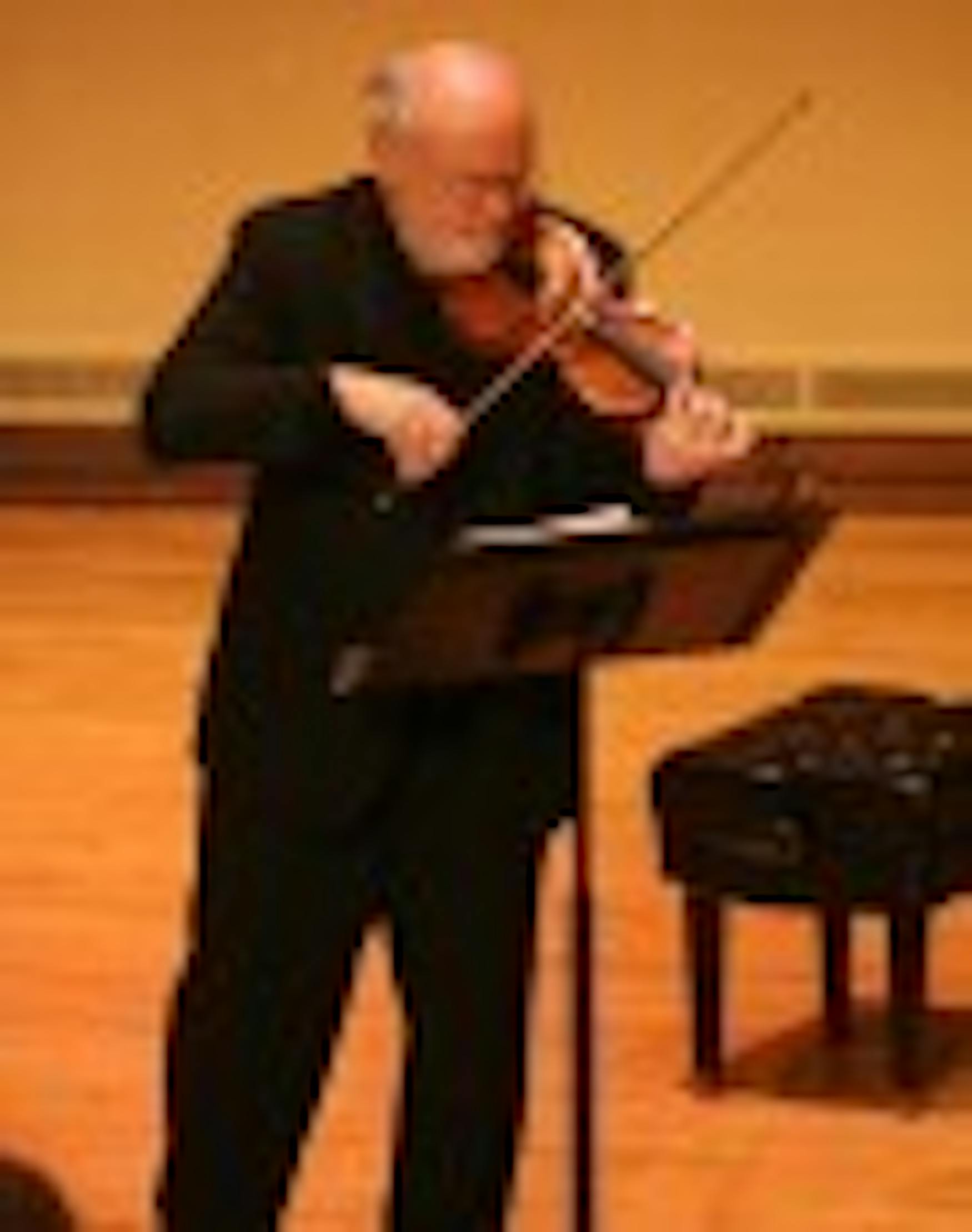"Daniel Stepner and Friends" perform in concert
"Daniel Stepner and Friends" was the title of the Brandeis composer/performer's concert last Saturday, and its meaning is quite literal. Comprised of works by Prof. Stepner (MUS) and a variety of his collaborators, the evening also consisted of a variety of classical compositions. This combination of old and new material served to bring together a night that was both memorable and surprisingly diverse. The concert was divided into two halves, with three primary performers. Most prominent of these was Stepner, playing on his trademark violin. I will not pretend to be a huge fan of violin music, especially of solo pieces. Indeed, I had expected Stepner's works to be run-of-the-mill, and I believed it would be difficult for such a relatively contained instrument to emanate anything memorable. But Stepner's skill with the violin was impressive, as he showed a ranged ability with the string instrument, going from slow, emotional chords to faster, dissonant and energetic strikes of the bow. Stepner's fortitude with the instrument was clear from the start with his first set of pieces, comprised of a suite of his original works entitled "Short Suite," proving to be quite exciting. Stepner said the piece was partially "an improvisation on some favorite musical motifs." These included "a jazz-tinted tribute to the violin fugues of Bach and Bartok." One segment of the suite was originally intended for one of Stepner's violin classes but it was interestingly presented here for the first time.
Stepner took on the first piece solo but was joined by tenor singer Frank Kelley for the second piece. Kelley, a veteran performer with the Boston Symphony Orchestra, Cleveland Symphony and Chicago Symphony Orchestra, among others, brought a truly operatic air to the music. His baritone voice was passionate and moving as he sang along with Stepner's melancholic melodies in an eight-movement piece titled "Eight Houseman Songs." A classical piece from 1927, the songs comprised the common themes of love, happiness, loss and solitude, with journeys both private and public, and these themes were performed with great emotion by Kelley. His heart was clearly in his performance, and it really showed.
Stepner and Kelley were joined for the third piece by piano player Donald Berman, a talented performer whose piano was perfectly in tune with Stepner's violin and Kelley's voice. Unfortunately, the three of them were only on stage together for one piece titled "Mr. and Mrs. Discobbolos," so their collaboration, while strong, felt a little incomplete.
Stepner returned to a solo piece with "Scuffle and Snap," a unique combination of Stepner's violin and prerecorded electronic sounds that played in conjunction with his strokes of the violin. It created a fascinating sound and was pleasing to the ears.
After a brief intermission, Stepner and Berman returned for three more pieces. The first, titled "Mood: Prelude to an Imaginary Tragedy," was another solo for Stepner and sounded exactly as the title describes. Tragic music abounded, but the result felt a little flat. Nothing new or diverse happened with this piece but the mood was rejuvenated for the next one: Stepner and Berman performed a three-movement suite titled "Worries Just as Real" from 2008. These movements were lively and witty-particularly the last movement, which was my absolute favorite piece of the night. Titled "The Thrill and Unease Towards the Unknown," this piece was exciting and exuded fantastic jazz riffs. It reminded me of a 1940s-style nightclub scene and even contained some vivid film noir elements. The piece was phenomenally exciting, calling to mind vivid images of a swinging urban lifestyle but tinged with an aura of mystery and excitement that noir typically brings to the scene.
The night ended with another three-movement piece titled "Sonata No. 2." Performed to perfection by Stepner and Berman, the piece was another upbeat variation, although this time, rather than teasing urban sounds as the previous piece did, it emanated a distinct folksy-village setting. The concept of a thriving, rural farm community came to mind, and the music was played with great energy.
If there's one complaint I have, it's that the ending of the piece was a bit jarring and incomplete. The piece ended in a relatively low-key fashion, and there was an odd pause when Stepner and Berman stopped playing for about five seconds but then performed about seven extra notes that didn't seem to contain any real purpose, and the result was that the concert felt a little inconclusive. Nevertheless, the crowd didn't seem to mind, as "Stepner and Friends" received a standing ovation.
Indeed, the crowd continued to applaud wildly, and Stepner was called back on the stage to give his final bows no fewer than four times. Despite the concert's somewhat unsatisfying conclusion, it was a highly exciting night, full of wonderfully performed concert music. I had never thought of myself as a fan of low-key music played with very few instruments. I've always gone for big orchestral sounds, and a piece centered around violins was never a major attraction for me. Nevertheless, Dan Stepner has made me a true believer.



Please note All comments are eligible for publication in The Justice.